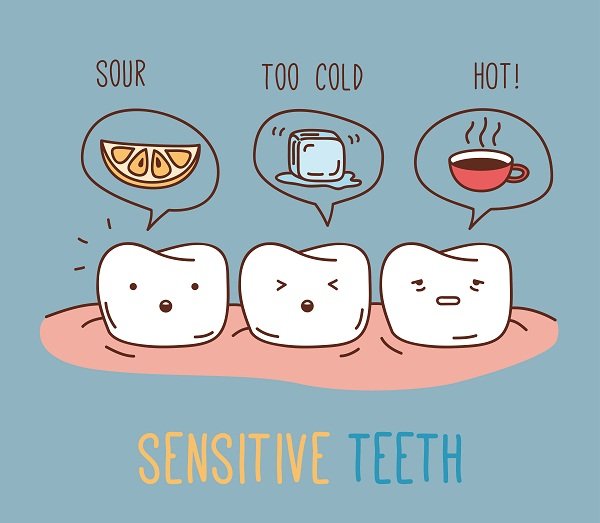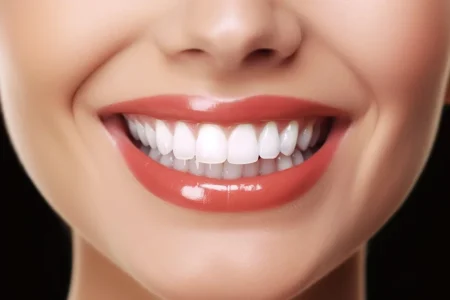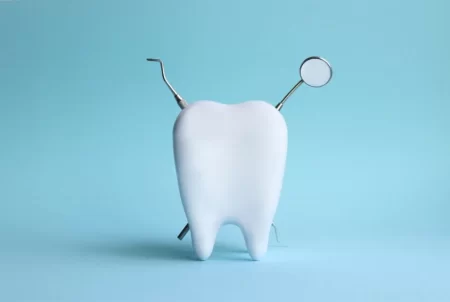What Leads to Tooth Sensitivity?
- Updated on: Jul 9, 2024
- 3 min Read
By
- Published on Oct 3, 2019


Tooth sensitivity causes
A layer of enamel covers the part of the tooth we can see. Enamel protects the dentine underneath. A tooth becomes sensitive when the dentin is exposed to change in temperature and various types of foods. Thus the main cause of sensitivity is exposure of dentin.
Exposure of Dentin
Exposure of dentin can be due to a number of factors which are the actual causes of sensitivity. These are described below:
Toothbrush abrasion
Brushing if not done in a proper manner can lead to dentin exposure. Brushing rigorously from side to side can cause the enamel to be worn away at the place where teeth and gum meet.
Lack of twice-daily routine
Brushing, flossing and rinsing should be done properly as and when required. When the routine is not followed properly, tartar may build up along the gum line. And this build-up is so bad that it can only be removed by a dentist. The cleaning procedure may expose the dentin.
Long-term use of mouthwash
Some mouthwash contains acids. Acids gradually damage the teeth which eventually lead to dentin exposure. If the dentin is already exposed, these acids make the condition worse and further damage the dentin. Use of fluoride mouthwash is usually recommended by the dentists.
Gingivitis
Gingivitis is the condition of inflamed and sore gum tissues. It can result in the exposure of the tooth’s root if not treated at the time.
Dental erosion
Dental erosion is the damage of tooth enamel because of acidic foods and drinks. Damaged enamel gives rise to the exposure of dentin and causes sensitivity.
Gums receding
Gum receding is also known as the gingival recession. It is a condition in which the roots of the teeth are exposed, leading to a greater risk of tooth sensitivity.
Gum disease
The gum recedes down the tooth after the plaque is build up. This also minimizes the bony support of the tooth. Pockets can form around the tooth that makes the area difficult to clean if you have gum disease.
Tooth grinding
Tooth grinding is the habit of clenching and grinding the teeth together mostly during the night. The repeated tooth grinding causes wearing of the enamel and makes the tooth sensitive.
Cracked tooth
A cracked tooth is the broken tooth and tooth filling are used to treat cavities and repair cracked tooth. A damaged tooth can run from the top down towards the root. This makes the tooth sensitive to changing temperatures.
Tooth Fillings
Tooth fillings are used to repair the cracked tooth. With time these fillings can weaken and leak around the edges. The bacteria can easily accumulate causing acids build up and enamel damage which makes the teeth sensitive. With time the problem becomes worse.
Tooth whitening toothpaste
Tooth whitening toothpaste contains whitening agents. They don’t actually whiten the teeth. They contain an abrasive material that grinds away stains on the enamel, making the impression of brighter teeth.
The continuous use of such toothpaste removes enamel or damages it making the tooth sensitive.
Excessive plaque
The main purpose of brushing and flossing is to clean the plaque from the teeth that forms after eating something. But if the plaque is not cleaned properly and regularly, it starts building up and continues in an excessive quantity which destroys the enamel. Eventually, the tooth becomes sensitive after losing the protection of enamel.
Past dental procedure
A dental procedure includes fillings and repairs, root canals, crowns, and teeth whitening. It is very normal to experience sensitivity after a dental procedure. But if the problem continues for a long time, it can be a sign of some infection.
Acidic diet
Acidic foods like citrus fruits, tomatoes, sour cream, yogurt, aged cheese and acidic drinks like orange juice, sports drinks, wine and carbonated drinks can strip away the enamel. Their continuous use makes the situation worse and increases the sensitivity of the tooth.
Sugary diet
Sugar prompts the bacterial growth which is responsible for the gums erosion and exposes the parts of the tooth which are sensitive. Cookies, cakes and other sugary things cause sensitivity in the tooth.
Wear and tear
Certain activities damage the tooth surface. This happens with abrasive brushing, improper flossing, biting hard objects (bottle caps, pens) and chewing tobacco. The wear and tear start from the cutting edge of the tooth (part of the tooth used to bite down the food). With time the wear and tear increases and makes the underlying area of the dentin exposed.
Aging
With age, teeth are worn away and the muscles (used for chewing) become weak. Tooth enamel thins and cracks with age making the teeth more susceptible to damage and tooth decay. The more enamel is damaged, the more exposed is the dentin making sensitivity more severe.











